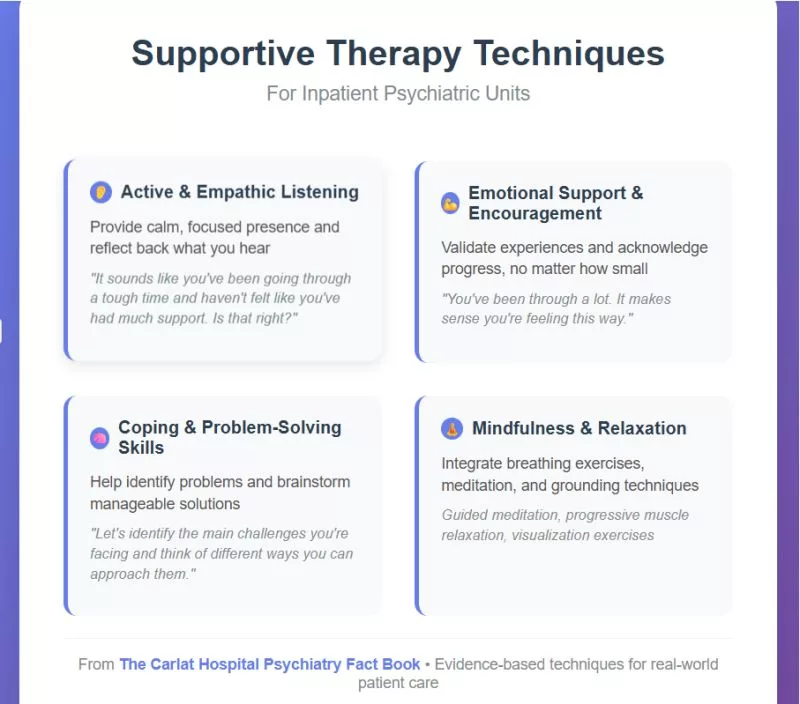Her business was failing and her marriage was falling apart. She wanted to OD on her insulin.
You increased her antidepressant.
Gave her something for the acute anxiety.
But sitting across from her, you realize the medications aren't touching the real pain.
Her world is collapsing. And she feels like it's all her fault.
"I can see how much weight you've been carrying. The business, the marriage—it sounds like you've been trying to hold everything together."
This isn't about the insulin anymore. It's about a woman who feels like she's failing at everything that matters.
Here's what I've noticed on the unit:We stabilize the crisis. We adjust the medications. But we don't always address the story underneath.
The story that says: "If I can't save my business, I'm worthless." "If my marriage ends, I've failed as a person." "Everyone would be better off without me."
The Hospital Psychiatry Fact Book outlines specific supportive techniques that work in these moments:
➤ Active and empathic listening: "I know this environment can be overwhelming. Let's take this time to focus on your thoughts and feelings." "It sounds like you've been trying to manage so much on your own. Is that right?"
➤ Emotional support and encouragement: "You've been through a lot. It makes sense you're feeling this way." "Coming here for help—that took courage. That's not failing, that's fighting."
➤ Development of coping and problem-solving skills: "Let's identify what feels most overwhelming right now and think of one small step you can take today." "When you think 'I've ruined everything,' try telling yourself, 'I'm facing challenges, and I'm learning how to handle them.'"
You can't save her business. You can't fix her marriage. But you can help her separate her worth from her circumstances.
How do you offer hope to someone whose external world is genuinely falling apart?
And when do you know that being present matters more than having answers?
These evidence-based supportive techniques are detailed in The Carlat Hospital Psychiatry Fact Book—practical tools for the most challenging moments on the unit.
Join the conversation on LinkedIn with Dr. Carlat


_-The-Breakthrough-Antipsychotic-That-Could-Change-Everything.webp?t=1729528747)



